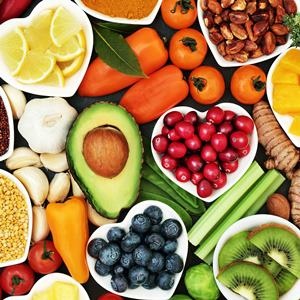
Could you be a health-nut?
When you have an eating disorder you tend to think constantly about what, when and how much you should be eating.
Proper nutrition from your diet will benefit your organs and tissues to work effectively. Fresh fruits and vegetables, whole grains, legumes, nuts, lean proteins are essential parts of a balanced diet.
If you have an obsession with eating foods that you consider healthy, and when you eat any food that you consider to be unhealthy, you feel anxious, guilty, impure; unclean you may have what is called orthorexia.
Orthorexia
According to The National Eating Disorders Association, orthorexia is categorised by an obsession with proper or ‘healthful’ eating. Although being aware of and concerned with the nutritional quality of the food you eat isn’t a problem in and of itself, people with orthorexia become so fixated on so-called ‘healthy eating’ that they actually damage their own well-being.
The diets become so strict that they have health-related consequences, including malnutrition, social isolation, and severe psychological strain.
Studies have shown that many individuals with orthorexia may also have obsessive-compulsive disorder.
The term orthorexia nervosa was introduced by American physician Steven Bratman in the late ‘90s. He believed that the medical condition had two stages.
The first is simply choosing to eat a healthful diet. The second is "an intensification of that pursuit into an unhealthy obsession."
He cautioned that simply adopting an alternative diet, whether based on science or pseudoscience, doesn't mean someone has orthorexia.
Warning signs and symptoms
- Compulsive checking of ingredient lists and nutritional labels
- An increase in concern about the health of ingredients
- Cutting out an increasing number of food groups (all sugar, all carbs, all dairy, all meat, all animal products)
- An inability to eat anything but a narrow group of foods that are deemed ‘healthy’ or ‘pure’
- Unusual interest in the health of what others are eating
- Spending hours per day thinking about what food might be served at upcoming events
- Showing high levels of distress when ‘safe’ or ‘healthy’ foods aren’t available
- Obsessive following of food and ‘healthy lifestyle’ blogs on Twitter and Instagram
- Body image concerns may or may not be present
How to get help
Your doctor or nutritionist may be able to help with orthorexia. Because of the emotional aspects of the condition, they may ask you to see a mental health professional.
The key is to recognise that your fixation on food may be bad for you. You’ll need to train yourself to think differently about it. If you do, you’ll be on your way to eating right for real.
There are currently no clinical treatments developed specifically for orthorexia, but many eating disorder experts treat orthorexia as a variety of anorexia and/or obsessive-compulsive disorder.
Thus, treatment usually involves psychotherapy to increase the variety of foods eaten and exposure to anxiety-provoking or feared foods, as well as weight restoration as needed.
Sources:
Image credit: iStock




 Publications
Publications
 Partners
Partners










